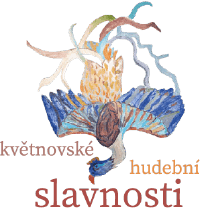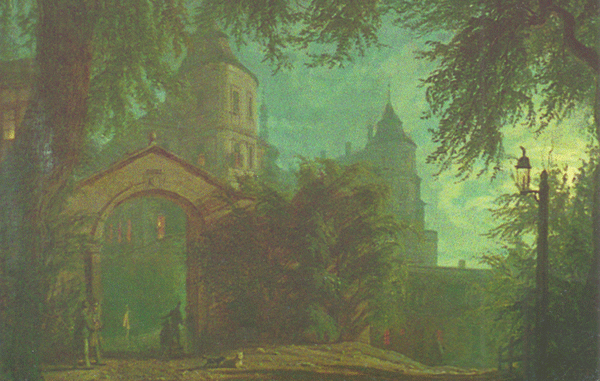Eisenberg (Jezeří) Music Summer 2015
Lobkowicz Band in the European Context or Success at the Congress of Vienna 1814-1815
Under the auspices of doc. JUDr. Pavel Svoboda PhD., D. E. A., Member of European Parliament
all August weekends at the state castle Eisenberg (Jezeří)
Carrying on the previous years' tradition, Eisenberg (Jezeří) Music Summer's fourth year presents again works by composers who were active in the famous music productions at the castle Eisenberg (Jezeř)í at the turn of the 18th and 19th century. The linking theme of this year's concerts is the Congress of Vienna (1 October 1814 – 9 June 1815).
This meeting of the most important figures of European politics of the time brought peace after the Napoleonic wars and became a huge cultural event, too.
La ville de Vienne offre aujourdhui un tableau frappant; elle contient un extrait de tout ce qu'il y a [du grand] <d'illustre> en Europe. L'Empereur, l'Impératrice et les Grandes-Duchesses de Russie, le Roi de Prusse, et plusieurs Princes de sa maison, le Roi [et le Pr] de Danemarc, le Roi et le Prince Royal de Bavière, le Roi et le Prince Royal de W ürtemberg, les Princes des maisons de Meklenbourg, de [xxx] Saxe-Weimar, de Saxe-Cobourg, de Hesse, etc. etc. enfin la moitié des anciens Princes et Comtes de l'Empire, enfin l'immense nombre de Plénipotentiaires des grandes et [de] petites puissances de l'Europe - tout cela produit un mouvement, et une variété de scènes et d'intérèt [comme on n] qu'il eut été difficile // de rencontrer hors de l'époque extraordinaire dans laquelle nous vivons. Cependant les affaires politiques qui forment le fond de ce tableau, n'ont fait encore aucun progrès réel; une infinité de conjectures, de projets individuels, [d'intrigues] sourdes intrigues, de démarches préludant aux débats qui vont s'ouvrir, nourrissent la curiosité, et font naitre mille bruits contradictoires.
Friedrich von Gentz in his letter dated 27 September 1814
The Congress of Vienna meant a real turning point in the careers of many composers. Besides established ones like Salieri, Jelínek or Vranický, also Beethoven at last achieved a real fame and financial reward. Until then only known in their regions, composers such as Beethoven's contemporary and friend Jan Josef Rösler gained a wider recognition, too. Ignaz Moscheles and then only 18 years old Johann Nepomuk Hummel celebrated an enormous success. Also Schubert, just turning 18, composed a few pieces for the Congress. Unlike all those ''battle and victory'' symphonies , these were more of an intimate nature.
Excellent contacts for future engagements were made and new compositions commissioned during the Congress of Vienna but also many musical friendships formed and deepened there. After Napoleon's dramatic return lasting however for only a hundred days, the borders stayed stable for a relatively long time and thus the individual artistic careers had better chances to develop.
After 200 years, the Congress of Vienna inspires us to connect musicians from various parts of Europe and to engage the castle Eisenberg (Jezeří) in the European music events not only passively as an organizer of the concerts but also actively: Eisenberg (Jezeří) commissioned a contemporary piece by a Basel based ''sampler composer'' Vincent Flückiger (b 1979), established cooperation with Želiv and Košice festivals as well as with a festival in Latvian Rezekne or with an association Kulturfreunde Lobkowitz in Bavarian Neustadt an der Waldnaab (with their similar, originally also Lobkowicz castle), creating art productions bringing together artists from various countries as well as giving an impetus to forming new artistic ensembles (Ensemble Eisenberg, founded at Eisenberg/Jezeří in 2013).









